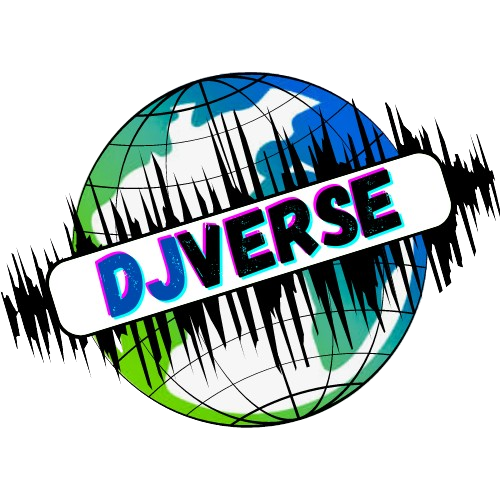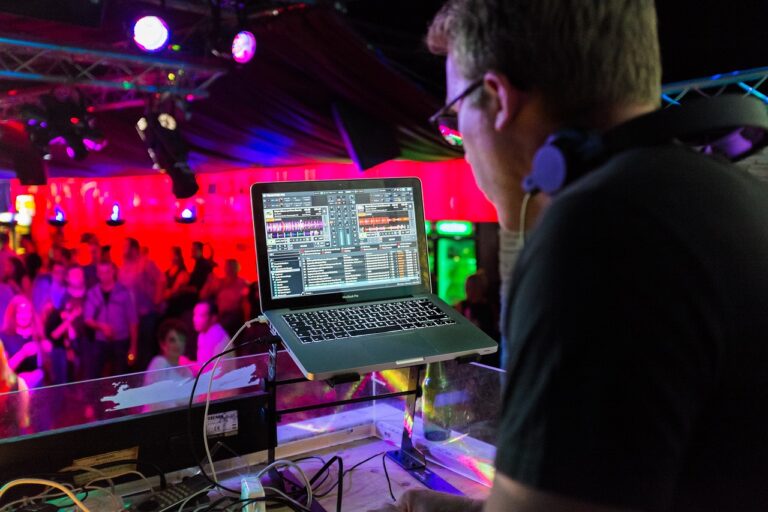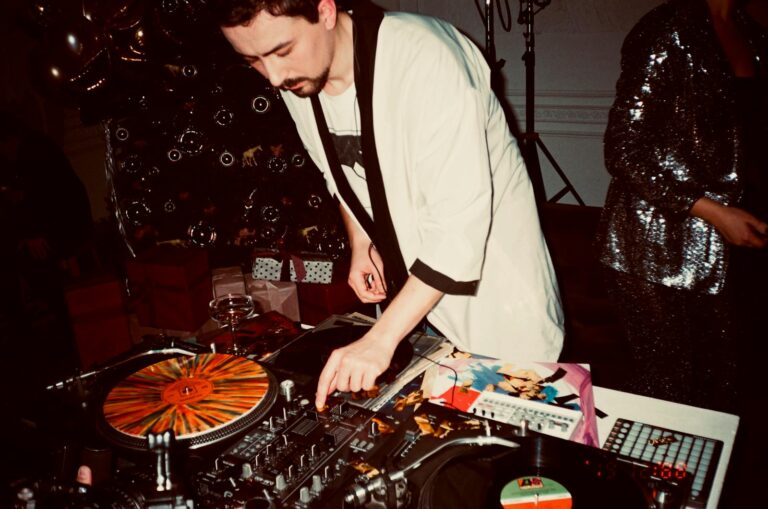
Are you looking for how to start a DJ business? You’re in luck! The global DJ equipment market is set to hit $732.1 million by 2025, which means now’s the perfect time to start a DJ business.
Whether you’re mixing tracks in your bedroom or you’ve been rocking clubs for years, starting a DJ business can turn your love for music into cold, hard cash. In this guide, we’ll walk you through everything you need to know to get your DJ business up and running.
Essential Equipment for Your DJ Business
First things first: you can’t DJ without the right gear. Here’s what you’ll need to get started:
- Turntables or CDJs: These are the bread and butter of any DJ setup. Turntables are great for vinyl lovers, while CDJs are perfect for digital DJs.
- Mixer: This is the heart of your setup. It lets you blend tracks and create smooth transitions.
- Headphones: You’ll need a good pair to hear the next track while the current one’s playing.
- Speakers and amplifiers: These bring the noise to any venue. Start with a basic PA system and upgrade as you grow.
- Software and controllers: For digital DJing, you’ll need software like Serato or Rekordbox, and a controller to use it.
Remember, you don’t need to buy everything at once. Start with the basics and build your setup as you book more gigs.
Developing Your DJ Skills and Style
Having the right equipment is just the start. To really make it as a DJ, you need skills. Here’s how to level up:
- Master beatmatching: This is the foundation of DJing. Practice matching beats until you can do it in your sleep.
- Build your music library: A great DJ has tracks for every occasion. Start collecting music across different genres.
- Find your style: What makes you unique? Maybe you’re a mashup master or a vinyl virtuoso. Develop your signature sound.
- Practice, practice, practice: Set aside time each day to work on your skills. The more you practice, the better you’ll get.
- Stay current: Keep up with new music and trends. Your audiences will expect you to know the latest hits.
Legal Considerations for Your DJ Business
Before you start booking gigs, you need to handle the boring (but important) legal stuff:
- Register your business: Decide if you want to be a sole proprietor or form an LLC. An LLC offers more protection but costs more to set up.
- Get licenses and permits: You might need a business license, and you’ll definitely need music licensing to play copyrighted songs.
- Understand copyright laws: Make sure you’re not breaking any rules when you play or remix songs.
- Get insurance: Protect your equipment and yourself with the right insurance policies.
- Use contracts: Always have a contract when you book a gig. It protects you and your clients.

Marketing Your DJ Services
Now that you’re legal, it’s time to get the word out about your awesome DJ skills:
- Create a killer website: Your website is your online business card. Make it look professional and showcase your best work.
- Utilize social media: Use platforms like Instagram, TikTok, and Facebook to share mixes, behind-the-scenes content, and connect with fans.
- Network like crazy: Get to know venue owners, event planners, and other DJs. They can be great sources of gigs and advice.
- Develop your brand: Create a memorable logo and consistent look across all your marketing materials.
- Show off your skills: Share mix tapes, live streams, and videos of your performances to demonstrate what you can do. You can use platforms like Soundcloud and Mixcloud for this.
Pricing Your DJ Services
Figuring out what to charge can be tricky. Here’s how to price your services:
- Research the market: Find out what other DJs in your area are charging.
- Set your base rate: Start with a rate you’re comfortable with, considering your experience and equipment.
- Create packages: Offer different options for different types of events and budgets.
- Know when to negotiate: Be flexible, but don’t undersell yourself.
- Offer add-ons: Things like lighting or MC work can boost your earnings.
Remember, as you gain experience and build your reputation, you can start charging more.
Managing Your DJ Business Finances
Running a business means keeping track of your money. Here’s how to stay on top of your finances:
- Open a business bank account: Keep your personal and business finances separate.
- Track everything: Use accounting software to record all your income and expenses, or you can hire an accountant.
- Budget wisely: Set aside money for equipment upgrades, marketing, and unexpected costs.
- Handle taxes: Set aside money for taxes and keep track of deductible expenses.
- Plan for slow seasons: DJing can be seasonal, so make sure you have savings to cover quiet periods.

Growing Your DJ Business
Once you’ve got the basics down, it’s time to think about growth:
- Expand your services: Branch out into different types of events, like weddings or corporate parties.
- Upgrade your equipment: Invest in better gear as your business grows.
- Hire help: As you get busier, you might need to bring on other DJs or assistants.
- Collaborate: Work with other professionals like photographers or event planners to offer more comprehensive services.
- Aim for residencies: Regular gigs at clubs or venues can provide steady income.
Tips for Success in Your DJ Business
Here are some final tips to help you succeed:
- Be professional: Always show up on time, dress appropriately, and be easy to work with.
- Read the crowd: A great DJ knows how to adjust their set to keep the dance floor packed.
- Keep learning: Take online courses, attend workshops, or find a mentor to keep improving your skills.
- Take care of your health: DJing can mean late nights and loud music. Protect your hearing and make sure you get enough rest.
- Have fun: Remember why you started DJing in the first place. If you’re having fun, your audience will too!
Starting a DJ business is an exciting journey that lets you share your love of music with the world. It takes hard work, dedication, and a willingness to keep learning and adapting. But with the right skills, equipment, and business know-how, you can turn your passion for music into a successful career.
Remember, success doesn’t happen overnight. It takes time to build your skills, your reputation, and your client base. But if you stick with it, keep practicing, and deliver great experiences for your clients, you’ll be well on your way to becoming the go-to DJ in your area.
So, are you ready to start your DJ business? Put on those headphones, fire up those decks, and get ready to make some noise. Your audience is waiting – it’s time to show them what you’ve got!







